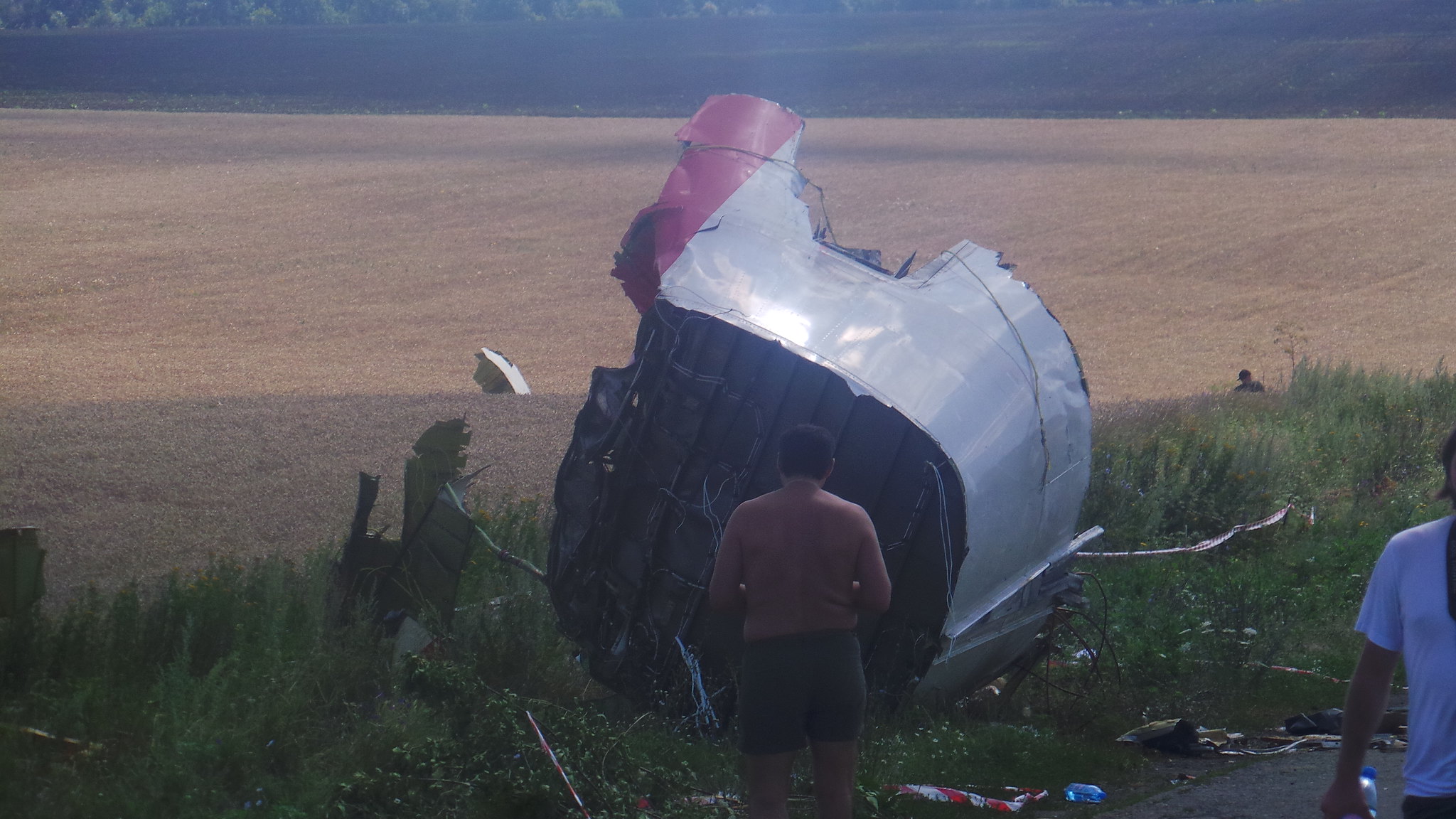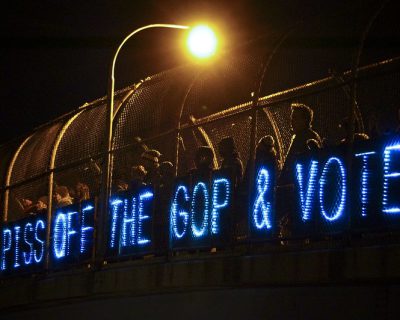A deep forensic investigation into one of the greatest aviation tragedies in history highlights the critical role of transparency and the role of the law in a conspiracy-minded, ‘post-truth’ society.
Besides the initial shock and horror of what happened, there was, of course, the visual carnage. Malaysian Airlines Flight 17 (MH17) was shot down on July 17, 2014 in Ukraine, over a war zone controlled by Russian and pro-Russian forces, killing everyone on board. Photographs of the bodies of the 298 innocent victims, many of them children, are seared onto the world’s collective memory.
The recovery of the bodies was a grotesque nightmare made more appalling by the ongoing conflict in the area. Even from a distance, one felt abused by what was going on — to this day, I still think about the Ukrainian emergency workers who did most of the work; they were initially criticized as uniformly careless and incompetent, but in fact they had been more dedicated than anybody thought.
What happened to the flight felt like a curse, a sacrifice to the deranged god of war.
Then, of course, came the questions. Who had shot the plane down, and why?
I work for Bellingcat. It is an online investigative collective that became famous for the thorough forensic research it did to debunk the lies and conspiracy theories that Russia disseminated in an attempt to prevent the truth about MH17 from being discovered and made public — we work with open source materials and know how to scour the web for clues more quickly and efficiently than many established, but often times not nearly as flexible, news organizations. Although the legal process is ongoing, we know that the Russian military was involved in bringing the plane down. We also know that Russia has been doing all it can to delegitimize the legal proceedings surrounding what happened — and not always succeeding.
Russia’s obfuscations, painfully obvious as they are, are also indicative of our collective need to adopt a strategy called legal realism. — an approach to the law that is based on empirical evidence. Being a legal realist means dealing with legal facts in a non-sensationalist but also holistic manner. It’s taking the facts of a case into account while also understanding why a case is important and who or what it impacts — i.e., not treating it in isolation. For example, if a president abuses power, you establish the abuse and take into account the corrosive effect such a case has on democratic institutions.
In a world of deep fakes, demagogues, and eroding trust in our established institutions, legal realism is essential — it provides a way for us to re-establish that trust, and to strengthen rule of law.
The arm of the law is long for a reason
The internet is home to many conspiracy theories about MH17. Some of them were created and spread with the help of Russian propaganda, while others are the product of the independent tinfoil hat brigade.
The explanation that emerged from the forensic analysis is clear: Russian forces mistook MH17 for a military plane and shot it down; and then the Russian government denied that it was at war with Ukraine — although it was, and still is. But many people reject this explanation; perhaps it strikes them as too banal.
Conspiracy theories are comforting because they provide an overarching framework to the brutal chaos of war — and of life in general. It wasn’t a mistake, it was a cunning plot by Ukraine and Hitlary Kkklinton (an influential woman must always have some role to play) to frame Russia! It was a cover-up for doomed flight MH370! It was the lizard people!
Unfortunately, the lengthy and cumbersome legal investigation into the fate of MH17 has had the unintended side-effect of fueling this madness. I am often asked, for example, why it has taken so long to bring charges against anyone. They claim is that if the case was really so clear, investigators would not have needed years to look into the matter.
I’ve written about aviation and aviation safety on and off for years, so I remind people that even a seemingly straightforward crash that does not take place in a war zone can take years to investigate. When a crash in a war zone involves a local power that is very keen to throw investigators off the scent, the investigation becomes extremely complex.
This is just one reason why legal realism is so important, although fake narratives are sexier and more dramatic.
There is one thing that feels better than drama, though, and that’s the righteous calm of acceptance. This is why I try not only to explain the legal process surrounding disasters, but to remind people that mistakes are actually very common.
One of the most stunning examples of a near-mistake prevented by pure courage is exemplified by the story of Soviet Lt. Colonel Stanislav Petrov, who in 1983 prevented a nuclear holocaust because he recognized an alert of incoming missiles was in fact a computer error. Petrov, who died earlier this year at the age of 77, was a hero — that one guy with nerves of steel who had the courage to make a decision that conflicted with his orders, and which ultimately held billions of lives in the balance. Very few people have that courage, which is why we are at such risk of catastrophe by human error.
A major part of being realistic about the legal process is accepting human nature. The accurate version of the events of July 17, 2014 might be simple and therefore more grim, but the history of civilization bears it out.
The judgments of history, however, rarely bring closure.
Don’t mistake legal justice for the sense of justice
What can make up for the lives lost on MH17? What can make this tragedy more bearable? I am often told that the answer is “nothing” — and that the pursuit of legal justice is therefore meaningless, or, better yet, performative. “Even if Russia did it, nothing is going to bring those people back,” people have told me in the immediate wake of the tragedy in Moscow, that formidably gorgeous city where legal norms, not to mention the norms of reality, are constantly in flux.
We’re inculcated with the belief that legal justice brings closure and peace — otherwise, we think, what is the point? People feel cheated if they do not receive justice.
The purpose of legal justice is not to bring closure, but it is nonetheless very important. By enforcing the law, we enforce the very concept of a law-abiding society — if you need a lesson in why that’s important, look no further than the social dislocation and random lawlessness in Russia itself, a country that went from legal chaos to legal nihilism after the fall of the Soviet Union. Legal nihilism is not symbolic, it really means the difference between whether or not the police will protect you or hit you up for a bribe, or whether a judge will collude with a prosecutor to withhold crucial evidence from trial and hand down a draconian sentence, something I’ve seen happen time and time again when I was a journalist working in the country.
And if you want to know what happens when the concept of a law-abiding society is completely thrown out the window and institutions crumble, look no further than the Russian-occupied parts of eastern Ukraine, where MH17 was shot down.
Via armed conflict and destabilization, carried out by Russia and some willing cohorts within Ukraine, parts of eastern Ukraine were effectively severed from the Ukrainian capital. The sham “governments” created there do not clearly answer to anyone, in fact, chaos is deliberately built into their very existence and is a feature and not a bug (no matter what Russian propaganda will claim). While this has obviously resulted in a prolonged war — it has also resulted in tragic byproducts of said war, of which MH17 is only the most famous example.
The fate of MH17 emphasizes and reinforces that we need a credible legal system that operates transparently. Without one, bodies rain out of the sky. Remember — the people who shot down the plane that day were there illegally, answering to God-knows-who, obviously given free reign to shoot at whoever they thought was a threat. In this case, the “threat” turned out to be a passenger liner.
And if you think that lack of respect for the law is some sort of “exotic” problem, that only happens “in those countries over there” — I bring you the whole of the Trump administration. The president’s most fervent supporters will actually support me on this one; they’re the ones yelling at his rallies for the president to break the law.
What they don’t understand is that civilization is fragile. When legal norms break down, we are all left vulnerable.



